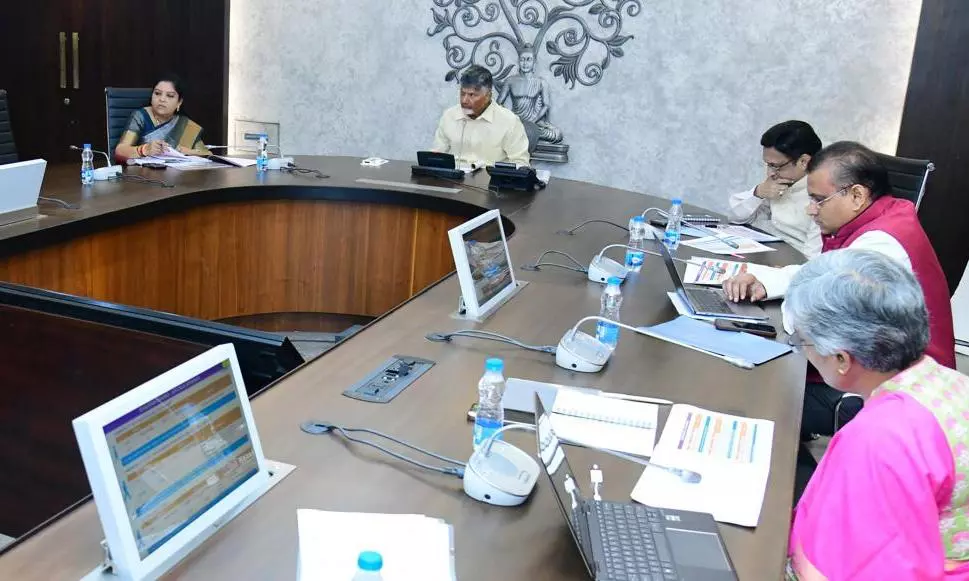CM Naidu Restores Feeder Ambulances and Pregnant Dormitories for Tribals

Vijayawada: Chief Minister Nara Chandrababu Naidu has directed the officials that the practice of shifting hospital-bound women in Dolis (palanquin) should stop in the tribal areas of Andhra Pradesh.
Instead, feeder ambulances would be reintroduced in these areas. Also, the dormitories for pregnant women, which were previously made available by the Telugu Desam government but closed later, should be reopened. Naidu also directed officials to organise an International Tribal Day next month.
The Chief Minister reviewed the current situation as regards the education, medical and welfare schemes for the tribals during a review meet of the tribal welfare department at the state secretariat in Velagapudi in Amaravati on Tuesday.
He said the previous YSRC government had derailed the schemes that were in force between 2014 and 2019. The schemes like NTR Vidyonnathi, Ambedkar Overseas Vidya Nidhi and Best Available Schools, which were meant for tribal students, had been derailed. The feeder ambulances that he had introduced for the treatment of tribals were also done away with in the last five years, he said.
The Chief Minister inquired about the sales and marketing of Araku coffee. “I had given top priority to the promotion of Araku coffee, but the focus on the sale of tribal products along with Araku coffee was lost thereafter. There is a demand for tribal products at the national and international level. By promoting such sales, changes can be brought about in the lives of the tribals,” he said.
He said promotion of honey, horticulture and coffee would yield good results.
Naidu asked the officials to eradicate ganja cultivation in the tribal areas. The APST cooperative finance corporation (TRICOR), GCC and ITDA should be brought back into operation, he said, and suggested that the speed of activities of these organisations should be increased.
The CM said the state would come up with details of the lands cultivated by the tribals, the income coming from the respective crops, as well as the per capita income from tribal products and other works.

